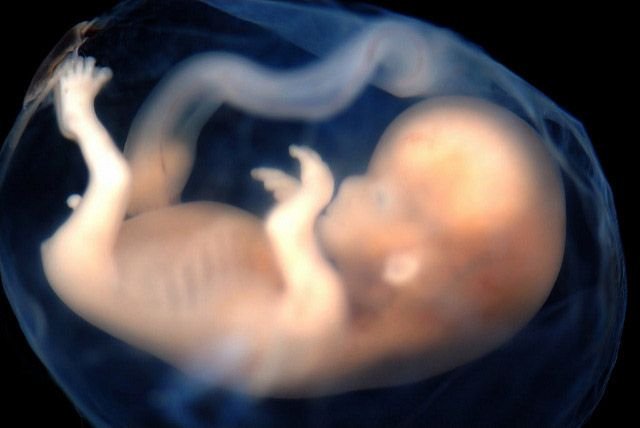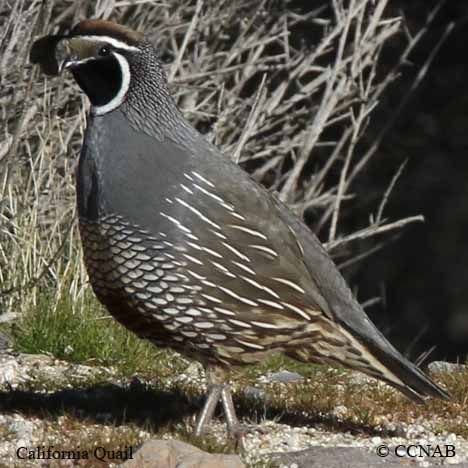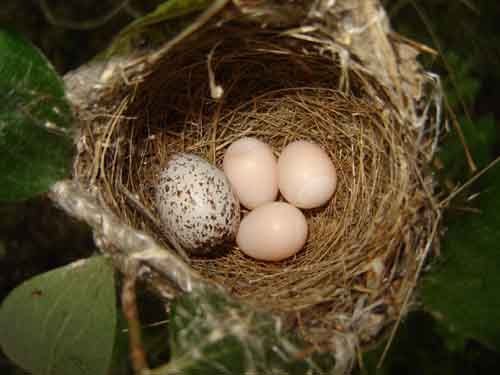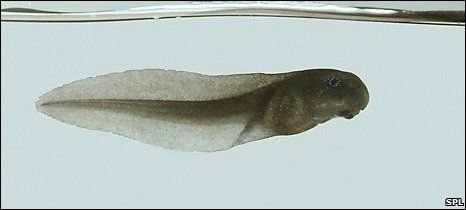The Embryonic Learning of Animals
Many animals are born and recognize predators upon seeing them. The iguanas from Fernandina island in the Galápagos know the snakes are their enemies when they dig themselves out from underground.

source
We might think this is simply a primordial instinct, but it's that some of the innate knowledge animals of all kinds gain, including humans, is a result of learning things in the womb or the egg.
Studies into young animals keep pushing back that critical moment that learning begins. Whether it's an egg for a bird that can listen to its mother, or lambs, cats and humans that learn about food before birth, there are even some embryos that watch the world as they develop from within, like the cuttlefish. These are all examples of acquired knowledge, not instinctual or innate programmed behavior.
Some human babies can have a preference for certain foods that their mothers eat a lot of, or even have a tolerance for spicy food.
A recent study on pregnant sheep in Greece showed that a lamb born to a mother who was regularly fed oregano, itself preferred to eat food that was flavored with the herb as well. Chickens have demonstrated the same continuity of a preference for food or flavor being carry over.
This is a basic form of learning that all animals can engage in by gathering information from their environment. Yet, many animals are born with the ability to walk, run or swim almost immediately. This ability, however, does not appear to be due to instinct.
One study showed rat embryos moving their legs in the womb in preparation for real life. Changes to their ability to walk in the womb (like tying their legs) resulted in adaptations to find a different way to practice walking.
Reprogramming of preferences can be done in many animals. Another study demonstrated this with sound. American quail eggs were played the calls of Japanese quail recordings. When the chicks hatched, two speakers each played the song of the American and Japanese quail. You can guess which one that chicks chose. They chose to go towards the calls from the wrong species because they were conditioned to.

source
In further studies in Australia, superb fairy wrens sing a unique password song to their eggs that they will then integrate into their own song once they hatch. The reason for this, is that there are cuckoo birds that lay their own eggs as parasites for the hosts to take care of. The cuckoo's only lay their eggs in others nests after a while, which gives the fairy wrens time to teach their young the unique password. When the cuckoo eggs hatch they don't have the capacity to integrate the conditioning of the password song into their own calls. The mother knows this and doesn't take care of the invader hatchlings as a result.

source
Tadpoles have been similarly trained with the smell of the tiger salamander which is their predator. Wood frog embryos safe inside gelatinous eggs were trained to associate certain cues of death with the smell of a predator.
Tadpoles could be trained at a certain time of day to freezing their movements in response to smells of death associated with a predator tiger salamander. Freezing is what they would naturally do in their normal environment if they encountered a predator, but they did this while in their embryos. If the smell of the tiger salamander was used to train them in the morning, it would not elicit a response in the afternoon.
And the opposite was true if they were trained to respond in the afternoon yet were eventually exposed to the smell in the morning, they would not respond in the morning. It only took two or three exposures for them to learn or change their conditioned behavioral response.

source
The various experiments show that while we end other animals are still unborn, there is still a lot of learning taking place.
Inputs from our environment in some way or another are being sent to inform us of what is happening, despite the limited capacity and embryo has to intake information. It's all to get ready for the environment we will soon be living in. Our senses come online and we already have conditioned information that we can filter through for cues and indicators about things going on in our newly discoverable environment.
References and resources:
- Early learners
- Maternal Diet Influences Offspring Feeding Behavior and Fearfulness in the Precocial Chicken
- Stimulus Contingency and the Malleability of Species-Typical Auditory Preferences in Northern Bobwhite (Colinus virginianus) Hatchlings
- Embryonic Learning of Vocal Passwords in Superb Fairy-Wrens Reveals Intruder Cuckoo Nestlings
- Cuckoos: Outsourcing Childcare, Hogging the Bed
- Experience with predators shapes learning rules in larval amphibians
- Frog embryos 'smell' predators
- Babies Learn to Recognize Words in the Womb
If you appreciate and value the content, please consider:
Upvoting  , Sharing
, Sharing  or Reblogging
or Reblogging  below.
below.
Please also consider supporting me as a Steem Witness by voting for me at the bottom of the Witness page; or just click on the upvote button if I am in the top 50:


@krnel
2017-02-01, 5pm

Excellent post dear friend, @ krnel, very interesting, every day you learn something new.
Thank you very much for sharing
Welcome ;)
Apologies for replying about another matter - infrastructure!!
You resteemed a post about knowledge and I interplayed it with another post about business start-ups. I hope you don't mind.
I would be very interested in hearing your thoughts about the format and its development as a steemit 'debate'. Here are the posts:
Interplay between two posts
Top 5 Most Common Start-up Mistakes: Nobody did this before so I must be a Genius
The Value of Knowledge
Thank you @krnel . very much to you have shared some interesting information.